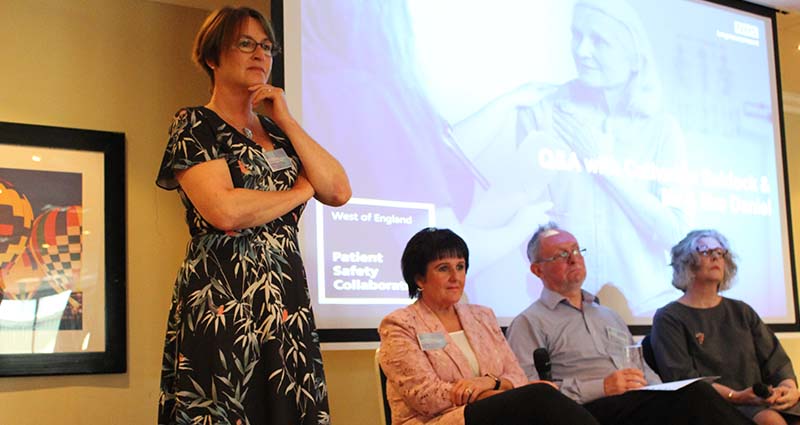
In this special blog post, Anne Pullyblank – Medical Director, West of England AHSN, discusses how ReSPECT started, the success of the programme, and what is next.
Back in 2018, there was a mixed picture across our region for managing end of life care. We knew we needed a unified system to make these challenging conversations easier and make sure a person’s wishes were recorded and easily accessible to health care workers in an emergency.
“ReSPECT has really helped with difficult conversations with families and patients during COVID-19 – we are proud to have been associated with such an important project which ultimately has improved the communication of peoples wishes at the end of their lives.” – Community health team
ReSPECT stands for Recommended Summary Plan for Emergency Care and Treatment. The ReSPECT process is about creating a personalised recommendation for someone’s clinical care in emergency situations where they are not able to make decisions or express their wishes. It was developed by the Resuscitation Council in partnership with patients and their families
We invited the Resuscitation Council to introduce ReSPECT in June 2018 when we were joined by 129 delegates from 54 organisations at an ‘Exploring approaches to end of life care’ event. Gloucestershire integrated care system (ICS) and Bristol, North Somerset and South Gloucestershire (BNSSG) sustainability and transformation partnership (STP) agreed to implement ReSPECT together and in October 2018 and March 2019, we held learning and sharing events to prepare for the joint ‘big bang’ launch in October 2019! The launch covered a population of 1.6 million people, including primary care, four acute trusts, four community healthcare providers, one mental health trust, the ambulance service, hospices and voluntary organisations.

“I can’t remember the last time I’ve had to flick through the notes of a deteriorating patient urgently searching for discussions about treatment escalation recommendations. Now I can just find the decisions easily at the front of the clinical records and give the patient the care that the team who knows them best, has agreed.” – A nurse practitioner
All acute hospitals in our area adopted ReSPECT and healthcare professionals received tea-trolley training alongside e-learning and face-to-face teaching prior to launch. A Quality Improvement (QI) project was undertaken with ward clerks ensuring ReSPECT documents and leaflets were discharged with patients and patients felt ownership of their end of life care planning. In the community, senior responsible clinicians were trained as authors of ReSPECT forms and others received awareness training.
The COVID-19 pandemic at the beginning of the year brought with it extra resonance for the ReSPECT programme. During the pandemic, registered nurses in nursing homes received online ReSPECT conversation training sessions, and completed forms for residents unable to see their GP. A training package was also created for RESTORE2 and developed for care homes which included awareness of ReSPECT. This package has so far been delivered to 560 care home workers from 55 care providers.
“What has been incredible is how the whole of the health and social care community within Gloucestershire have come together and driven this project. The cross boundary working, shared learning and respect, literally for each other’s roles has been really fantastic to see.” – A social care provider in Gloucestershire

Watch the video of our recent ReSPECT celebration event here.
After this successful adoption and spread of ReSPECT, we are conducting qualitative evaluation of the ReSPECT process in care homes in collaboration with Applied Research Collaborative (ARC) West. The protocol has recently been amended to reflect use during the COVID-19 pandemic. We are also collaborating on a study to audio-record ReSPECT conversations in acute care.
The conversation continues but we are delighted with what we have achieved with the ReSPECT programme to date.
Learn more about ReSPECT here.
Posted on November 6, 2020 by Anne Pullyblank, Medical Director West of England AHSN



